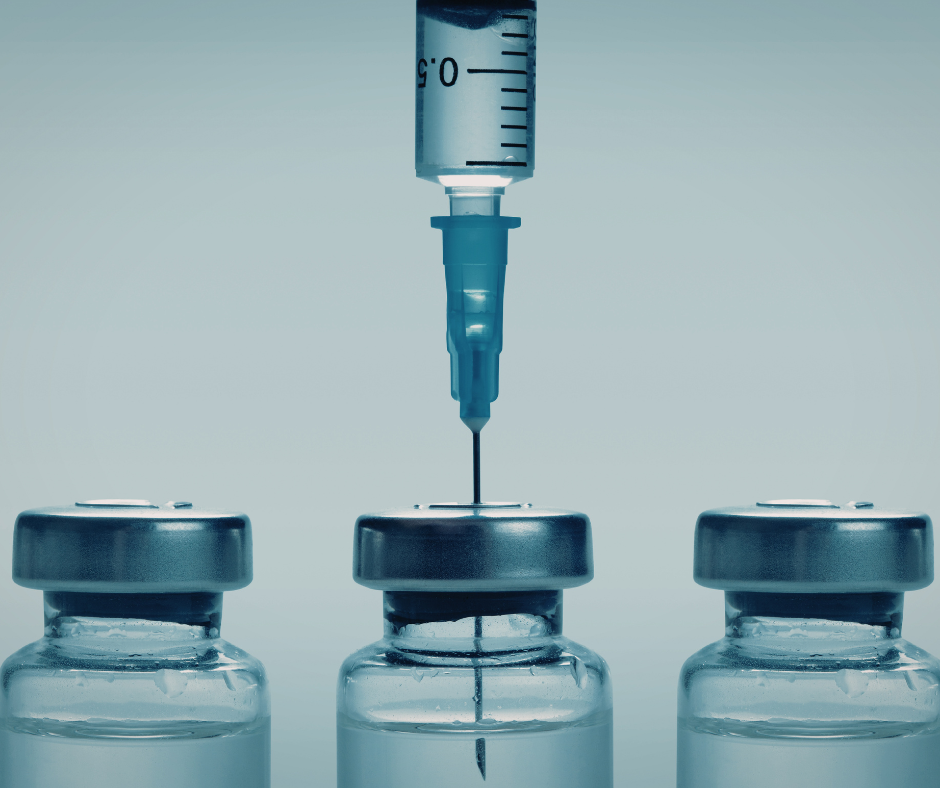Testosterone is the male sex hormone, produced in the testicles. Males need adequate levels of it to support healthy sexual development, muscle strength, bone density, and other key functions.
If your testosterone levels have started to decline, help is available. Medical providers can prescribe supplemental forms of this hormone to bring your body back into balance. Known as testosterone replacement therapy (TRT), this treatment is available in an array of forms including intramuscular injections, gels, patches, and more. However, it’s important to ensure you’re getting the right formula for your needs.
Are you wondering how to get prescribed testosterone? The process might be easier than you think. Today, we’re sharing a few reasons why you may need this type of treatment, what to expect, and how to get started today.
Who Needs Testosterone Therapy?
Some men have a condition known as Low-T. This means their body doesn’t naturally produce enough testosterone to support their physical, mental, and emotional functions. While testosterone levels begin to decline around age 40, Low-T can occur at any time.
Once this initial decrease begins, most men will continue to lose around 1% to 2% of their body’s natural testosterone stores every year. When this occurs, you’ll notice the difference in how you look and feel.
Some of the first symptoms you may spot include fatigue, depression or anxiety, and the loss of facial or body hair. You may also find that your muscle mass is lacking. This is because testosterone generates proteins that help build muscle, which then increases strength.
Other common symptoms of Low-T include:
- Low sex drive
- Erectile dysfunction
- Increased body fat
- Brittle bones
- Mood swings
- Hot flashes
- Low sperm count
- Memory and concentration difficulties
Testosterone replacement therapy (TRT) can help address this hormone imbalance. By adding exogenous forms of testosterone to your body, you can help replenish your levels and reclaim your quality of life. Whether you’ve been experiencing these symptoms and setbacks for years or you’ve just started to notice slight changes, there’s a TRT treatment plan for you.
Let’s review how it works.
How Does TRT Work?
Before beginning any kind of testosterone therapy, it’s important to ascertain that Low-T is truly behind the symptoms you’re experiencing. Some conditions can cause side effects similar to the ones listed above, such as:
- Obesity
- Diabetes
- Opioid use
- Certain congenital issues (medical conditions you’re born with)
- Loss of or harm to the testicles
Your medical provider can perform a blood test to understand more about the underlying cause of your condition. If they find that low testosterone levels are to blame, they’ll work with you to develop an individualized treatment plan.
There isn’t a one-size-fits-all type of TRT that works for everyone. Rather, this is a very personal journey and it’s important to work with a physician who will tailor their approach to meet your needs.
Depending on your symptoms, current condition, and future health goals, your doctor may recommend one of the following forms of TRT:
- Intramuscular injections
- Topical gels and creams
- Transdermal patches
These solutions are available in both branded and generic form. While the formulas vary, the unifying factor is that all TRT options are a form of bioidentical hormone replacement therapy (BHRT). This means that the hormones used are molecularly identical to the ones that your body naturally produces.
As a result, the treatment is more effective and successful. It also comes with fewer side effects, delivering a balanced and synchronous approach to health and wellness.
The Process at Evolve
At Evolve, we believe that intramuscular injections are the most effective forms of TRT. We maintain strict BHRT protocols that ensure our treatments are not only effective but safe. Every step in your treatment complies with all medical industry standards and is performed with your satisfaction and comfort in mind.
Here’s a breakdown of what you can expect when you trust our team to help you with this treatment.
Initial Lab Panel
Before we can recommend an appropriate form of TRT, we need to understand as much about your condition as possible. During our initial consultation, we’ll go over a detailed version of your health history. We’ll also talk with you about your personal goals and the results you hope to see from this treatment.
Then, we’ll conduct our initial lab panel. The results from our lab tests give our physicians a full, accurate picture of your overall well-being. In addition to your hormone levels, we’ll also be able to see other important health indicators, which will help us develop a customized treatment plan that works.
Comprehensive vs. Comprehensive PLUS Lab Panel
For your initial lab test, we offer two different options:
- Comprehensive Lab Panel
- Comprehensive PLUS Lab Panel
Both labs are thorough and look for more markers than standard primary care doctors check for, including your hormone and thyroid levels. Here’s how they differ.
The Comprehensive Lab Panel includes all the basic bloodwork you’ll need to get started with your TRT treatment. It helps our providers get a clear look at your general health, including factors such as:
- Hormone levels
- Metabolic health
- Thyroid health
- Lipid profile
- Blood sugar levels
Once you complete your in-person bloodwork, you should have the results back in three to seven days.
Our Comprehensive PLUS Lab Panel includes all of the above plus more in-depth and detailed insight into your most critical health markers, including your:
- Hormone function
- Lipid levels
- Vitamin levels
- Stress levels
- Thyroid health
- Metabolic health
- Organ health
These lab tests help us understand your current condition forward and backward, so we can be sure that we’re developing a hormone replacement therapy plan that will work for you. In addition to these two primary lab tests, we also offer lab testing on an array of other conditions.
Some of our specialty panels include:
- Thyroid panels
- Hair loss panels
- Weight loss panels
- Gut health panels
- Food allergy panels
You can speak to your provider on your initial call to learn more about the lab testing we offer.
Follow-Up Lab Testing
After we analyze the results, we’ll share our recommended treatment plan with you. Once you’ve been performing the TRT for about eight to 12 weeks, we’ll conduct follow-up lab tests to chart your progress and make sure you’re on the right track. This lets us know if we need to make any changes to your plan.
We’ll go over all of your lab results with you so you’re always aware of our process. You’ll work closely with a dedicated care coordinator, who will take the time to explain what each marker and lab result means.
Benefits to Expect
When you begin your customized TRT plan, you can expect to see noticeable changes in the way you look and feel. While each individual is unique, some of the most common results that our patients have shared with us include:
- Greater muscle mass and strength
- Improved sexual performance
- Higher sexual desire
- Improved ability to concentrate and stay on task
- Less irritability and improved mood
- Increased energy and stamina
- Easier ability to burn body fat and maintain weight
- Hair growth (face, head, and body)
According to our studies, around 70% of men who undergo our TRT plans report being “very satisfied” with their treatment! This is great news for anyone suffering from signs of Low-T.
Working With Us
Now that you know a little more about how TRT works, let’s go over what makes Evolve unique. We’re the nationwide leader in bioidentical hormone replacement therapy and peptide therapy for a reason! Our healthcare providers are not only some of the most knowledgeable and experienced in their fields, but they’re also dedicated to patient comfort and care.
We offer premium telemedicine services that allow you to obtain a testosterone prescription right from the comfort of your own home! The only in-person step is your initial blood draw, which we’ll use to perform your lab work. After that, you can meet with us virtually at your convenience, so your health answers are always just a click away.
We’ll work with you throughout every step of the process, making you an active participant in the development and implementation of your personalized care plan. This includes equipping you with all the answers and insights you need as you begin treatment. We believe in staying in close communication with our clients, and we’re always available any time you want to check in, ask a question, or talk about your progress with your care coordinator.
Learn How to Get Prescribed Testosterone
Years ago, participating in hormone replacement therapy would mean visiting a physician in person to participate in multiple treatments. Today, companies like ours are revolutionizing this approach. We offer extensive telemedicine services that make it easier than ever to receive the targeted, tailored treatments you need.
If you’re wondering how to get prescribed testosterone, you’ve come to the right place. Our team at Evolve can help you understand your current condition, set health goals for your future, and develop a personalized TRT plan that works for you.
To get started, complete our quick intake questionnaire. Then, we’ll reach out to you shortly to explain the next steps!






